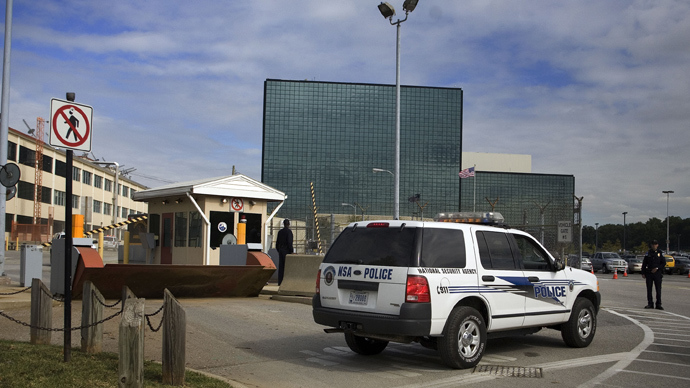Obama advisers recommend NSA overhaul after surveillance scandal – report

A White House-appointed task force is to recommend an overhaul of the National Security Agency, including changing the controversial bulk phone record collection and giving it civilian leadership, according to a Wall Street Journal report.
The panel of experts called the Review Group on Intelligence and Communications Technology was called in August in response to the public revelations of the NSA’s mass electronic surveillance by whistleblower Edward Snowden.
The five-strong task force is to submit its recommendations to the Obama administration on Saturday, but the document is not yet finalized, and it’s not clear how much of it the White House chooses to make public.
The newspaper was given an overview of the panel’s recommendations by four people familiar with the draft. If the US administration chooses to follow on the non-binding suggestions, it would mean a lot of changes for how the key US intelligence agency works.
The experts recommended forbidding the US from collecting and storing millions of phone call records of Americans. Instead the records would be held by phone companies or a third party, with NSA receiving access to select data after meeting a new higher standard of proof.
The task force also suggested changing NSA leadership from military to civilian. Currently the agency is part of the Pentagon’s Cyber Command, the main military cyber-warfare unit.
Another suggestion is to separate NSA’s Information Assurance Directorate, the part responsible for code-making, from the rest of the agency. This would help to avoid a conflict of interests, in which one component of the agency is developing and promoting new encryption methods and other communication security protocols while another is tasked with cracking them.
The panel suggested reviewing NSA’s procedures for issuing security clearances. The intelligence agency came under fire after it was revealed that Snowden was given his clearance, which allowed him to leak classified documents detailing the surveillance programs, despite having been red-flagged.
Other provisions of the draft address concerns by US’ foreign allies, who voiced anger after finding out, that their leaders and citizens were subject of NSA’s snooping. Germany and Brazil were among the most vocal critics of NSA over the tapping of phones of Chancellor Angela Merkel and President Dilma Rousseff respectively. The experts suggest developing international norms for government activity in cyberspace and rules for cyber-warfare.
The members of the task force are Richard Clarke, a longtime US counterterrorism chief; Michael Morell, former CIA deputy director; Geoffrey Stone, University of Chicago law professor; Cass Sunstein, former White House regulatory official; and Peter Swire, a former economic and privacy official.
The Obama administration said it would consider the task force suggesting in its own review of intelligence policies. The review is expected to be complete by the end of the year.














